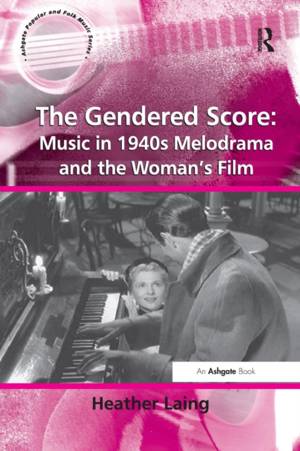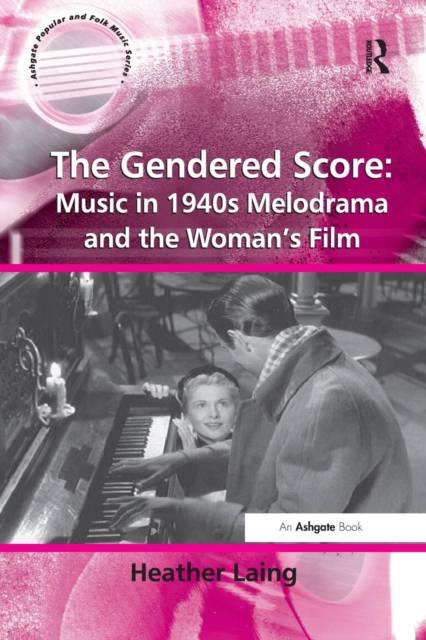
Door een staking bij bpost kan je online bestelling op dit moment iets langer onderweg zijn dan voorzien. Dringend iets nodig? Onze winkels ontvangen jou met open armen!
- Afhalen na 1 uur in een winkel met voorraad
- Gratis thuislevering in België vanaf € 30
- Ruim aanbod met 7 miljoen producten
Door een staking bij bpost kan je online bestelling op dit moment iets langer onderweg zijn dan voorzien. Dringend iets nodig? Onze winkels ontvangen jou met open armen!
- Afhalen na 1 uur in een winkel met voorraad
- Gratis thuislevering in België vanaf € 30
- Ruim aanbod met 7 miljoen producten
Zoeken
€ 75,95
+ 151 punten
Uitvoering
Omschrijving
Heather Laing examines, for the first time, the issues of gender and emotion that underpin the classical style of film scoring, but that have until now remained unquestioned and untheorized, thus providing a benchmark for thinking on more recent and alternative styles of scoring. Many theorists have discussed this type of music in film as a signifier of emotion and 'the feminine', a capacity in which it is frequently associated with female characters. The full effect of such an association on either female or male characterization, however, has not been examined. This book considers the effects of this association by progress through three stages: cultural-historical precedents, the generic parameters of melodrama and the woman's film, and the narrativization of music in film through diegetic performance and the presence of musicians as characters. Case studies of specific films provide textual and musical analyses, and the genres of melodrama and the woman's film have been chosen as representative not only of the epitome of the Hollywood scoring style, but also of the narrative association of women, emotion and music. Laing leads to the conclusion that music functions as more than merely a signifier of emotion. Rather, it takes a crucial role in both indicating and determining how emotion is actually understood as part of the construction of gender and its representation in film.
Specificaties
Betrokkenen
- Auteur(s):
- Uitgeverij:
Inhoud
- Aantal bladzijden:
- 210
- Taal:
- Engels
- Reeks:
Eigenschappen
- Productcode (EAN):
- 9781138264731
- Verschijningsdatum:
- 15/11/2016
- Uitvoering:
- Paperback
- Formaat:
- Trade paperback (VS)
- Afmetingen:
- 156 mm x 234 mm
- Gewicht:
- 303 g

Alleen bij Standaard Boekhandel
+ 151 punten op je klantenkaart van Standaard Boekhandel
Beoordelingen
We publiceren alleen reviews die voldoen aan de voorwaarden voor reviews. Bekijk onze voorwaarden voor reviews.











